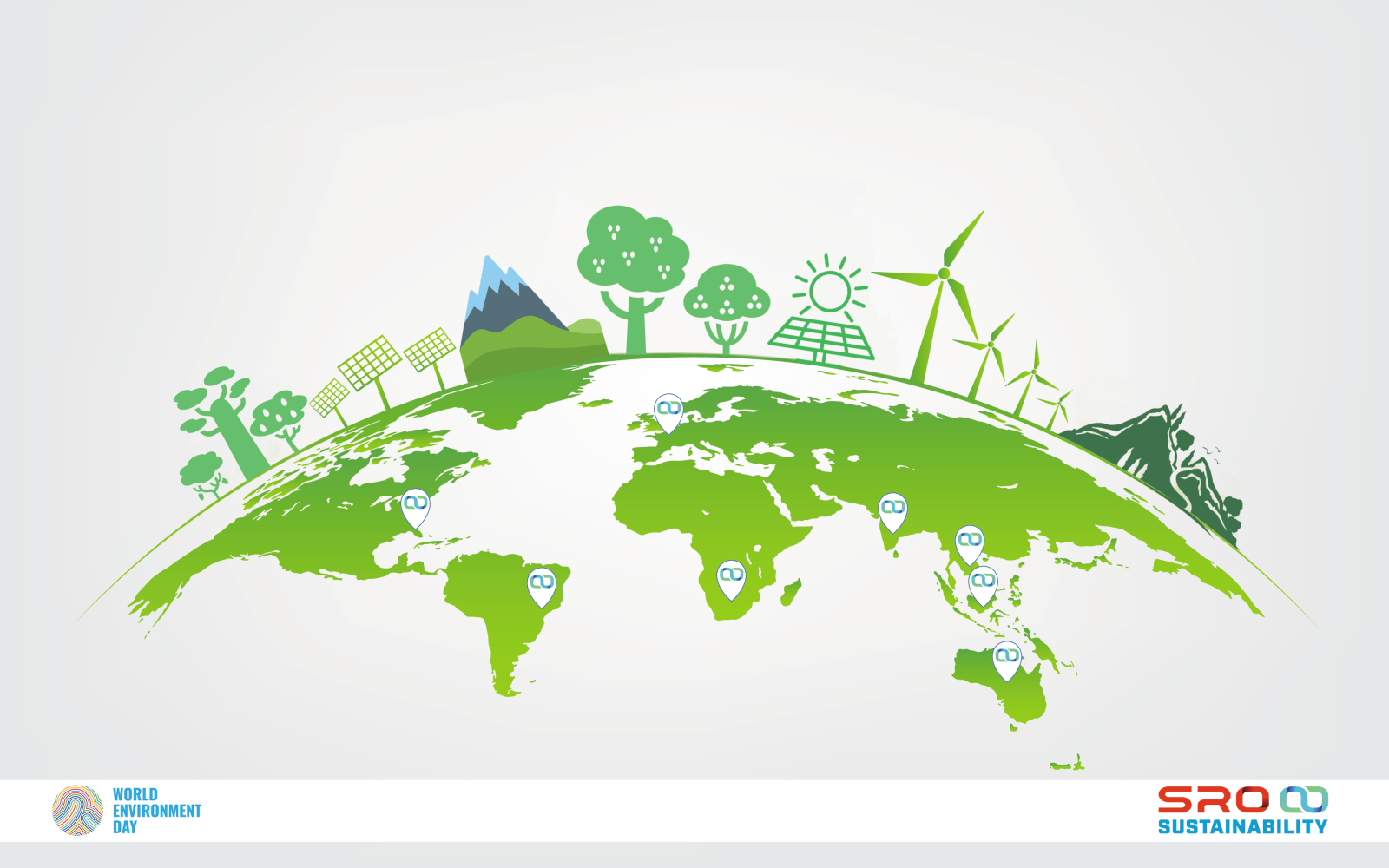- Progress aided by investment in eight carefully selected environmental projects around the world
- Diverse portfolio includes nature and technology-based initiatives on six continents
- Carbon reduction efforts include single-use plastic ban in keeping with #BeatPlasticPollution environmental theme
SRO Motorsports Group joins today’s UN World Environment Day celebrations with the news that it has reached 85 percent carbon neutrality.
Established by the United Nations and staged annually on 5 June since 1973, UN World Environment Day is marked by millions around the globe and represents the largest international platform for environmental public outreach. This year’s 50th anniversary edition will be centred around West Africa, with Côte D'Ivoire acting as host.
SRO began its own journey towards carbon neutrality in 2021, compensating for unavoidable emissions while placing considerable emphasis on carbon reduction. As part of this effort the company has significantly increased its commitment to environmental projects, lending its support to eight important initiatives around the world.
These efforts have helped SRO to reach 85 percent carbon neutrality, an important increase on the previous year’s figure of 66 percent. Each of the projects has been carefully selected and verified by relevant environmental certification standards. They support the United Nations Sustainable Development Goals and are subject to regular third-party audits.
To encourage carbon emissions removal and carbon avoidance, a balance of technology-based and nature-based initiatives have been selected. The former includes the N20 Abatement project in Florida, which makes essential products safer and more sustainable for consumers, thereby reducing millions of tonnes of CO2e.
In the Netherlands, SRO has continued its support of the Methane Recovery Project Princepeel Wilbertoord for a second year. Electricity and heat are generated using manure from local pig farms, with the added benefit of reducing uncontrolled methane emissions. A renewable energy scheme in India generates clean electricity through solar sources, diversifying a national grid that has been dominated by thermal and fossil fuel-based power, while the Longyuan Mulilo De Aar 2 Wind Project supplies wind-generated electricity to South Africa, which has traditionally relied on coal-fired power plants.
The nature-based ventures include the CIKEL Brazilian Amazon REDD APD Project, which will prevent almost 10 million tonnes of CO2 being emitted into the atmosphere over the next decade by avoiding planned deforestation. In Indonesia, the Katingan Peatland Restoration and Conservation Project seeks to protect and restore close to 150,000 hectares of peatland ecosystems, while also supporting traditional livelihoods and offering locals a more sustainable source of income.
The Mount Sandy Biodiversity Conservation in Australia safeguards a rare pocket of intact native vegetation. This is made possible through close collaboration with the Ngarrindjeri people, the land’s traditional custodians, ensuring permanent protection for this regionally and culturally important area. Finally, in Cambodia, the Southern Cardamom REDD+ scheme protects close to 600,000 hectares in the Koh Kong Province from deforestation. Significantly, of the six continents covered by these initiatives, SRO will stage race events on five during 2023.
“I am very pleased to confirm that we have reached 85 percent carbon neutrality,” said Stéphane Ratel, SRO Motorsports Group founder and CEO. “This is our third year investing in environmental projects around the world as part of a company-wide commitment to sustainability. Our portfolio is now at its most diverse and more relevant to our racing activities. By supporting these initiatives, we are establishing a global environmental presence that matches our activities in motor racing.”
Among its other efforts, 2023 marks the second year in which SRO has instituted a single-use plastic ban at all events. Work is also ongoing to utilise existing biodegradable alternatives for plastic, and mandating that teams do the same across their pits and paddock hospitality units, connecting with the #BeatPlasticPollution theme of World Environment Day.
Additional carbon reduction actions include working with sustainable suppliers, recycling unused uniforms, prioritising eco-friendly travel and accommodation, and supporting the use of biofuel in race paddocks. The company can also count 3,400 new trees planted or in the process of being planted since the start of the year, further underlining its commitment to a sustainable future both on and off the track.
__

